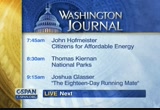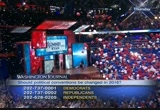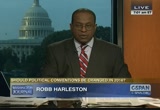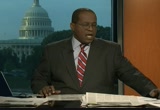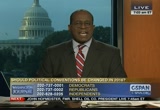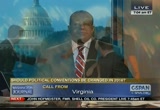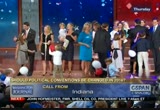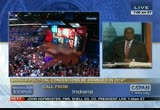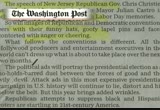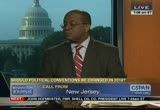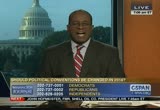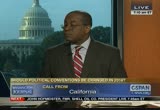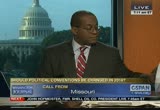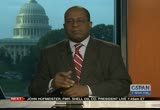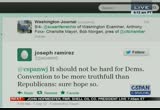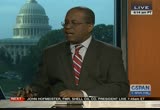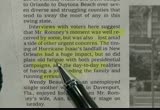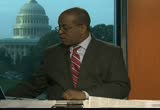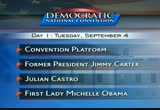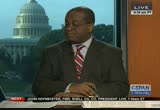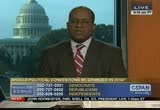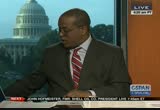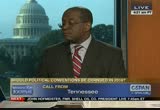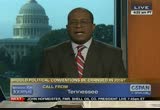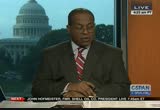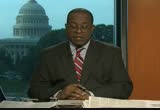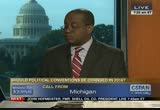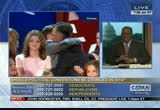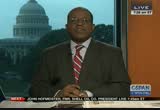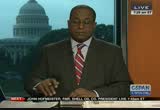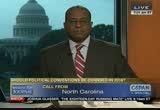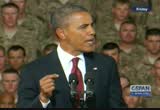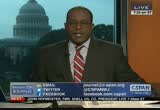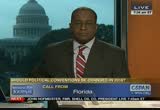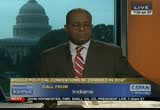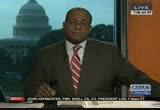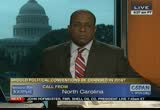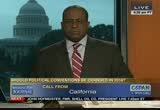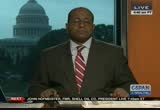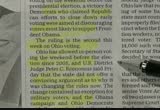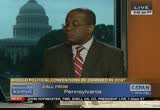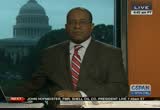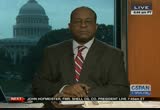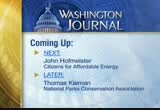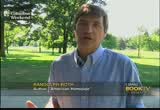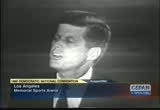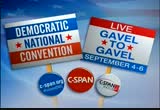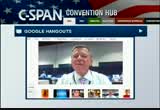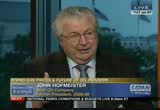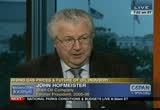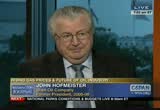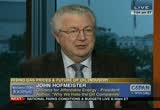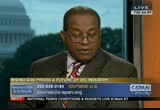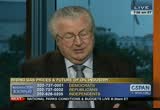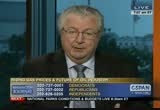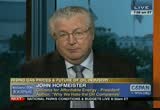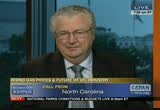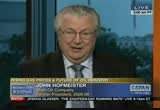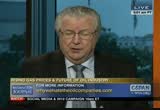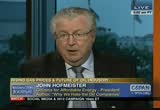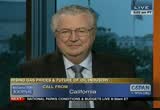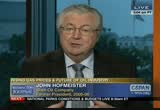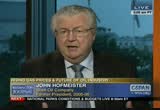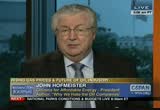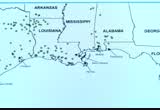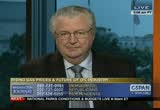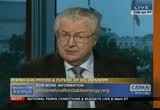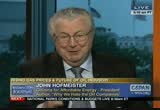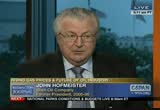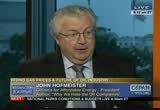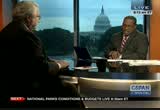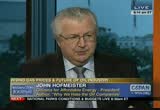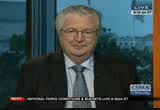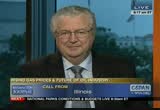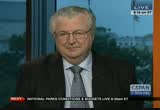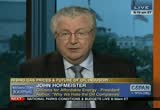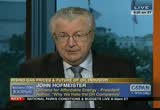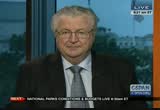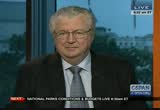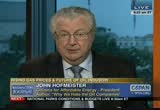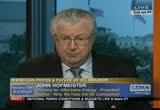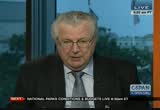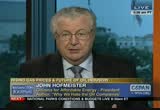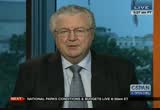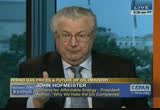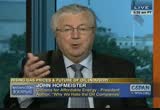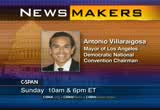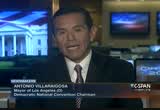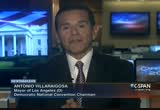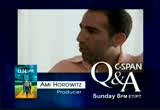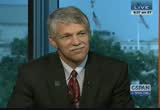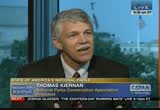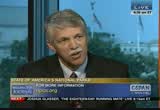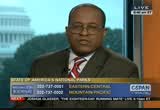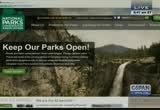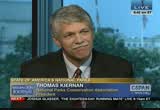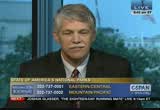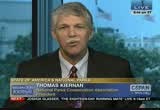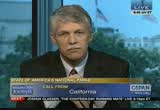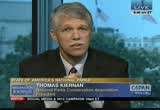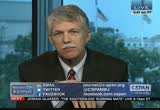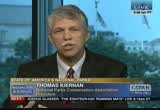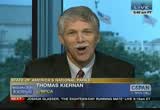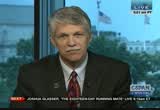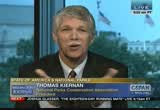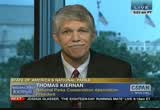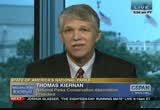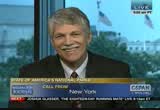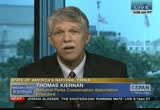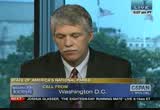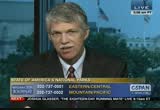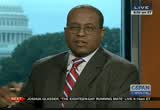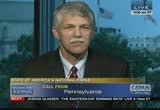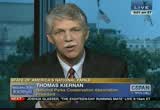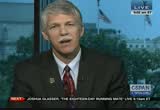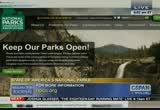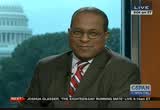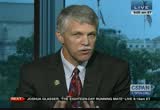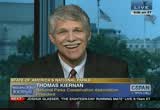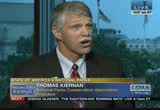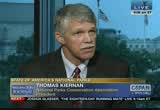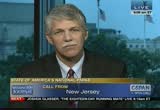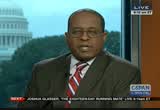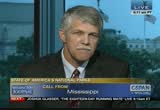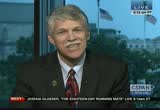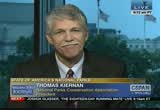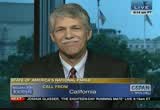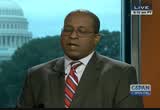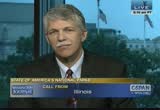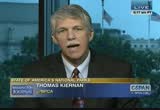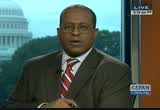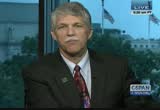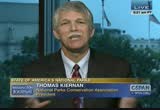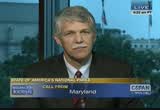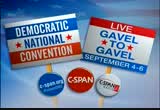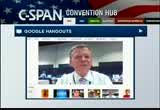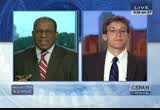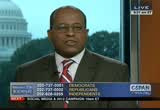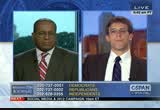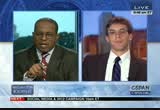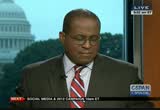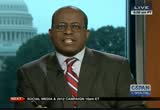tv Washington Journal CSPAN September 1, 2012 7:00am-10:00am EDT
7:00 am
convention in his book, the 18-day running mate. "washington journal" is next. one party is over. another one is on the way. the democrats start their convention in charlotte next week. welcome to this edition of "the washington journal." today is saturday, september 1. and for the first 45 minutes of the program, we're going to talk about whether or not you think political conventions should be changed for 2016. what do you think about what you saw in tampa? what are you anticipating on seeing in charlotte. if you're an historical political but, what have you seen in past campaigns that you'd like to keep? what would you like to change for the conventions coming up in
7:01 am
2016. the numbers on the screen, 202-737-001 for democrats. 202-737-0002 for republicans. 202-628-0205 for independence. if you are calling from outside of the united states, you can get in touch with us via social media, twitter, and the address there # csspan wa. the facebook.com/c-span or journal@c-span.org. this is an editorial, a piece in "the washington post" with the headline -- "after the party is over." he's talking about what he saw in the republican convention. he says conventions can be memorable events. they're known to energize the
7:02 am
party faithful. they can convert never heard-of, barack obama into celebrities. modern day political conventions produce a steady stream of informercial, rather, during primetime all without paying for coverage. conventions have their pitfalls. these affairs have, on occasion, slipped off message, producing sometimes unanticipated adverse events. the violent clashes between police and protesters at the 1968 democratic convention nearly overshadowed the political rough housing on the convention floor. word of this week's incident, rather, in tampa in which two republican guests reportedly threw peanuts at a black cnn camerawoman saying, quote, this is how we feed animals is spreading like wild fire among african-americans and other minorities obliterating the diversity message the republicans delivered on stage. so this is how we're going to
7:03 am
start. we want to talk to the first 45 minutes of the program. should political conventions be changed in 2016? our first call comes from texas on our line for republicans, chris? you're on the "washington journal." >> caller: good morning. >> host: good morning, chris. tell me what did you think about the republican convention in tampa and what would you like to see changed for 2016? caller: i think we should have more exposure because it seems like the media is favoring the other side. i don't think we're getting -- the whole country is not getting our message. it's just not being told. that's so wrong. this isn't russia, you know, it's almost like some kind of bloc european country. host: chris, in the three days of coverage that were on all of the network, including c-span,
7:04 am
what message don't you think the republicans got out. caller: i don't think they did a good job on the convention. we need and enlarge our conventions, certainly not stifle them in any way. we're being stifled enough by the come police it media. have you seen nbc, cbs, they're not telling the news, they're definitely helping out the left side. host: going to move on to petersburg, virginia, ronald is on our line for democratings. go ahead, ronald. caller: how are you this morning? host: fine. how do you think political conventions should be done in 2016. caller: i don't think one dime of taxpayer money should go to any political convention. there's no justification for it. they raise hundreds of millions of dollars. i just don't see why taxpayer
7:05 am
money should go to this. an example -- politicians considering themselves first. that's my only comment. host: to indianapolis, indiana. christian is on the line for independents. good morning, christian? caller: how are you today? host: what do you think should be changed for 2016. caller: i liked c-span where you got to see everything. in a world scripted, in a world where the main stream media or any of the media has kind of a limited -- a limited -- they don't cover it and we end up in snippets. there's so many things, it's interesting some of the more heart felt stories or some of the most interesting things, sometimes are lost because the general public doesn't get to see it because it's not -- the networks don't have the capability of running it.
7:06 am
and so the other thing is it would be nice to have an opportunity to have more -- just natural -- how would you put it. where you have a reporter who's just walking around and able to just kind of get the sense of the people. i feel so many times the stories are so scripted, though. and the speech is so controlled. and what's the common person on the floor really think or the common person around there. host: you'd like to see more coverage of what's happening on the floor and more of the stories of the people who are there in addition to the politicians and the people who are up on the stage? caller: yeah, i think so many times it becomes so focused for a few people. what's the real story about why you came. why are you here? what made it so important to you that you would spend your time. these are people who have made a commitment to take part of their
7:07 am
life to come there, what were the reasons that really drove them to be so engaged in politics or in a situation like this. we need people to understand what's driving them. i want really human beings expressing what's going on. host: christian from indianapolis, indiana. more on "the washington post." more after the party is over. he writes conventions don't determine election outcomes. that is true for the just concluded gop conclave and the democratic convention next week. the speech of new jersey republican governor chris christie as with the san antonio mayor julianne cristo is scheduled to deliver will fade with labor day memories. so will the funny hats, goofy lapel pins and faces contorted rather with anger and cheering. what follows the conventions is different, all of the hollywood
7:08 am
producers and entertainment executives in the world can't dress up what's about to take place over the next two months. we're talking about should political conventions be changed in 2016. bob is a republican in plumbings the ton, new jersey. box you're on the "washington journal." caller: i think for the heck of it -- i'm a republican because bust i watch the other coverage for the heck of it. all they do is spew it. if you can get it right from the horse's mouth. exactly what's going to happen. they say they're lying, this and that. they don't look in the mirror, look at obama all of his promises. they never cut the deficit. it's okay for him to lie to the public, but yet they're spewing all of this venom. they can't learn. i don't understand. it's just a hard core liberals that you can't change their views because it's just -- it's
7:09 am
so ingrained in us. i don't think they should allow any media coverage at our convention at all. let them cover their convention, we'll cover ours. host: aside from the convention and the analysis of the various members in the media, were there things you saw in the convention that you would want to change? caller: -- well -- host: one of the callers said the convention should go on longer than three days. caller: i like the fact we did it for three day, we missed one day, if anything, maybe a little shorter. i don't really care about clint eastwood being on there, he's kind of -- we don't need it, it's not a celebrity contest. this is a fact contest. >> that's bob in plumbington, new jersey. we want to remind our viewers
7:10 am
and listeners for all of our campaign coverage, convention coverage, rather, on c-span, you can go to our c-span convention hub where you can see all sorts of video streams that we gathered from the conventionings. get updapts to what's happening in charlotte over the next week for the information we're looking for for our coverage of what's happening at the convention, go to our c-span convention hub. and the link there is -- the link there on our c-span website, c-span.org. back to the phones, hayward, california, kareem on our line for democrats, kareem, you're on the washington journal, go ahead. >> yes, i think that the convention, should it be changeled? i think it's a good way to get the message out.
7:11 am
and i think that should be televised and could be covered by all media outlets possible. because you know, it's a way for the party to reach out. sometimes people cross party lines. i'm not, but sometimes people do cross party lines and they might get energized by the message that the particular party is giving during a convention. host: next up is mary in hannibal, missouri. she's on the line for republicans. go ahead, mary caller: hi, i'm kind of nervous. host: that's okay. take a deep breath, you'll be fine. caller: i watched the coverage through c-span. sometimes i switched stations to switch. msnbc was talking during the speeches, so did cnn and
7:12 am
sometimes so did fox. after paul ryan's speech, someone called and said he was lying regarding the gm closing in his hometown. and then your host went to do a fact check on it and came back and said, yes, he was incorrect. well, actually your host was wrong. because the plant did not close. when bush was in office. it closed after bush was in office. so i would appreciate it if they would not get into that fact-checking because now the fact checkers are not correct. you have to really search for who was actually telling the truth. i hope that makes sense for you. host: so do you think that there should be a different tenor in what's presented at the conventions? like you say, you know, the -- mr. ryan makes a speech, people start going to the various sources, checking what they consider to be the facts and the story may or may not be
7:13 am
simplified or corrected based on what these people come up with? caller: i did appreciate what he was saying. and inbut i don't like c-span doing a one side or the other side deal. let the people figure out what's going on. plus going back to the length of the convention, i liked the three days. this is the first time i've seen the convention all three days. and i really did love the comedian part of it. it eased up some of the tension host: that's mary in hannibal, missouri. we have a tweet from gary danz who writes, hmm, that's the question? why? the political par 'tis want to contribute to a large city's bottom economic line, so what? and we also got another tweet. this one is for joseph ramirez
7:14 am
that said it should not be hard for democrats to be truthful for republicans, sure hope so. sandy, you're on the washington journal, go ahead. caller: yes, good morning. i believe there should be no convention. host: no convention? caller: no convention. it should be for money for politicians going to sell themselves on television to the public and have the public each time in each city, ask them questions and be stop the lying and the way to stop the lying is to stop them for 60 million people around them and see what they come up with because we need the truth.
7:15 am
well, they can -- like i said, go travelling around city-to-city. they can move 52 cities in the year, that's what they want. they want to be a politician. have a certain time, certain day and a certain place to meet in the country and have all four -- the president, the vice president, both parties. that's supposed to be all three parties. host: that was sandy in massachusetts. in "the new york times" this morning, this article, "too busy or just too tires." some floridians paid the convention little mind. susan salney writes interviews here in orlando florida suggests that mr. romney's moment was well received by some and also lost in the tide of other urgent concerns, the timing of isaac's
7:16 am
landfall in new orleans had a huge impact but so did plain old fatigue of presidential campaigns and the day-to-day realities of having a job, feeding the family, and running errands. mr. romney spent a significant amount of primetime making a direct appeal to women putting ann on a pedestal and praising his mother who once ran unsuccessfully for the united states senate. often criticized as aloof, mr. romney sought to humanize himself in the efforts to appeal to the broad array of undecided voters, many of whom are women. with voters' attentions floating in and out, it was not clear whether his efforts had much impact. in a word of warning for president obama who holds his own convention in charlotte, north carolina next week, the conventions do not seem to be must-see television. ratings were down significantly from four years ago according to neilsen media research. back to the phones.
7:17 am
homestead, florida on the line for democrats. blue, you're on the washington journal. >> good morning, america. caller: my comment is simple. they spend way too much money. i believe they can send the message without spending so much money. host: where would you like to see the money spent? how could that money be better spent in your opinion there, lew? caller: we have the deficit, medicare, the elderly. for two years we didn't get a raise because of the stimulus package. i mean the money could be spent in other ways. host: we want to remind our viewers and listeners of what's coming up next week in the democratic national convention and show you a little bit of the schedule that you'll be able to see on c-span and the other networks. day one, tuesday, september 4, the convention platform is unveiled along with a speech by
7:18 am
former president jimmy carter. julianne castro takes to the podium. first lady michelle obama is expected to speak on tuesday, september 4. wednesday, september 5, elizabeth warren who's running for senate in massachusetts will be going up and making a speech. the nominating speech will be made by former president bill clinton and temperature vote on the presidential nomination, the roll call of the states all takes place on wednesday, september 5. on thursday, vice president biden speaks, and president barack obama makes his acceptance speech. you'll be able to see that all on the c-span network. you'll be able to listen to it on c-span radio. for all of the information on our coverage of the democratic national convention in charlotte, north carolina, go to our webpage, c-span.org. back to the phones. brian in san antonio, texas is on our line for republicans. brian, how should political conventions be changed in 2016.
7:19 am
as far as the conventions go, they're fine. i think we need to hear what they have to say. what bothers me is the way that the media covers the conventions is kind of horrifying. you know, like many people have said when they called, they're flipping around different channels and seeing that other channels are leaving things out, they're cutting out the heart-touching stories and things like that. it's amazing to me how biassed the media has been about this. they're taking sides. when does the media decide who the president is going to be. that's what's happening. >> doesn't the -- the american public still has the choice when they go to the voting booth in november. caller: i agree. the american public -- the only way they know anything is what they see on the media. the media is cutting out things. host: where did you do most of
7:20 am
your convention viewing? caller: flipped around, cnn, nbc, you noticed different things being chopped out. one i noticed was often taken away from it was, you know, the story about the lady and the family and how mitt romney helped her i didn't see that in a lot of reports. now i'm getting to the point where they're watching it instead of covering disrespecting things that happened. clint eastwood, american icon. everybody loves clint eastwood. i never heard a man get more disrespected in his life because he's talking to an empty chair. they shouldn't have opinions like that. the media is supposed to cover facts, that's it. >> brian in san antonio, texas. this tweet is from mary. she thinks the convention should be even bigger and flashier requiring more hands to put them together. sounds like a little bit of sarcasm there, mary. back to the phones. kyle is on our line for
7:21 am
independents. and kyle is calling from san diego, california this morning. go ahead, kyle. >> hey, good morning. going back to what you were talking about. showing the statistics and conventions have not reached a popular level in the united states. a lot more things are nor popular in tv that are more -- host: we're going go over to cordoba, tennessee. denise on the line for democrats. denise, you're on "washington journal," go ahead. caller: speaking off of the cuff, i want to say conventions are a great avenue for political parties to get out their message. i want to say they can involve more into educational type of forum. in terms of keeping the marketing going. because definitely the marketing benefits the city they're in. but i think they can look at some of the professors, college
7:22 am
students, those kind of people, to really have an input in bringing more of a higher level of content to the conventions. i want to say we could leave some room for some common people to take part. i'm speaking off of the cuff about three different parts, the marketing, the educational impact, and that, but as an american society, we evolved a little more than what the conventions are kind of showing on tv. that's my point. we can just kind of up the ante a little more in terms of what our messages are about, what kind of people participate, and, yet, keep the humor in but i think they definitely benefit the city that they're in, which is what they're supposed to do. host: to you participate in social media at all. there's a lot of discussion in various forms either on twitter, facebook, or folks sending e-mails back to each other.
7:23 am
people are talking about what they see in the conventions. do you participate in that for a while. caller: trying to participate a little more. i keep a busy schedule. i'm in school, ill work full time. so i do want to get to the social media a little bit more than what i have been. and i really do realize i have a lot to say. but i actually right now going to open a twitter account. that's going be my biggest next plunge. >> make sure that you put us on your -- on your chain there and is the twitter address is c-span wj. and we've got a tweet from liz smith who writes under the handle, kentucky bell 1957. she says, i had no problems with the conventions. i love all of the glitz and glamour and excitement.
7:25 am
caller: conventions will always be the way they've been since they've been started. the only thing that i see could be changed is the dirty play -- the convention hall up here was broken into. and i don't see where -- that's what you call dirty politics. that ought to be cleaned up. the american way is to be able to have rights and say what you need to say according to what you're running for. and i guess the only thing that gets me is everybody is talking about, you know, mitt romney doesn't tell who he is. when he does, nobody seems to
7:26 am
accept it. host: what did you think of the speech that governor romney gave on thursday? do you think he explained himself enough to the american people? >> between him and everybody else, yeah. and if people didn't get a good view of who mitt romney is, what were they listening for? host: if there was anything that you could change for 2016 to help the american people understand who the nominee is for each particular party, what would you do? caller: require they be on more on time. they give an overall of what they're going to do and never go into depth. i don't know if they want to get committed or whatever the case may be. but people are honest and up front given the buildup for whoever. host: stan in marquette, michigan. in the new york times as well as
7:27 am
other papers this morning, the lead story talks about fed chief ben ber man keep and his making a case for a stimulus is the headline in the new york time ms. and applebom writes from jackson hole, wyoming. ben bernanke delivered a forceful speech with steps to stimulate the economy reinforcing that the fed is on the verge of action calling the persistently high rate of unemployment a, quote, grave concern, language that several experts describe as unusually strong, he clear that a run of tepid rather than terrible economic data had not altered the fed's will to act because the pace of growth remained too slow to reduce the number of people who lack jobs. that's how it's playing in the new york times.
7:28 am
"wall street journal" -- fed sets stage for stimulus. the chief defends past measures. weak labor market requires more help. and in "the washington post" this morning, their lead story again, same topic, fed chief implies stimulus to come, central bank to be forceful. they write that in a widely anticipated speech here in jackson hole, wyoming, bernanke said the growth is far from satisfactory and pledged the fed would be forceful in taking action to drive faster growth. the tone of bernanke's remarks suggested many economists say the central bank would launch a new round of economic stimulus when the fed's policy board meets in two weeks. it could embark on a new round of bond purchases, pushing record low interest rates even lower and making it cheaper for people to buy homes or refinance mortgages. you can read all of that in today's major newspapers around the country.
7:29 am
ashville, north carolina. on the line for independents. good morning, roy. >> hey, rob, thank you so much. thank you -- thank y'all, c-span, for broadcasting so much of ron paul's events. seems like the other networks blacked him out. it was very suspicious. host: what would you like to see changed for 2016. caller: one good thing about it, we got these jokers on record for the -- just the liars they are -- violent liars too. clint eastwood drew his finger across the throat talking about the president of the united states. when he did that, he threw his finger across the throat to every citizen in this couny. romney sneered at the president for caring about mother earth, god's cathedral. they all cried about how they
7:30 am
came from such poverty. chris christie said my mother came from nothing. i mean, these guys it's good to get them on records and let them spin themselves poor hopefully. host: the lead editorial in this morning's "wall street journal" talks about what they call mitt's speech gamble. in it they write in his acceptance speech, he toss it out his five policy ideas almost as an afterthought. energy got one sentence, education scored big with two. neil armstrong received almost as much speech time as what mr. romney would do specifically to spur faster growth and raise middle class incomes. this isn't because mr. romney lacks an agenda, the platform is brimming with ideas, most of them good, many excellent. he simply didn't talk about them. no doubt this was a strategic political calculation, perhaps a judgment based on polling that mr. romney's main challenge is to reassure undecided voters that he's not heartless, scary,
7:31 am
or extreme. what do you think about ha? -- that? caller: i tell you, "wall street journal," they're showing their true nature. romney has nothing. he has no specifics. that's why he can only devote one or two sentenced to each thing. the mars curiosity up there that was accomplished ahead of time, better than anyone saw. and no one's talking about immaterial. i mean, you talk about the new frontier, kennedy's vision and all. this was a big leap. and they didn't want to give kudos to that. it was so american. you know, those guys who built that, the curiosity, i'm talking about. they don't give a flip about the
7:32 am
democratic nonsense. that's such an american accomplishment. they did not mention that once too. it's more about what they did not mention that really hurt. er you know, i -- conventions are good for showing these -- these -- whoa, i don't know what the word is except bozos or buffoons for what they are. >> leaving it there, roy in ashville, north carolina. a tweet from d.w. english who writes conventions give ordinary people a chance to hang out with party insiders for a few days. nothing wrong with that writes d.w. english who sent us this message on twitter. we want to show you a little bit about what the president was saying. it was not a campaign address that he made on friday at ft. bliss, texas. but he was talking to the troops there. this is a little bit about what he had to say and we'll continue our conversation regarding political conventions. >> not just ending these wars, we're doing it in a way that keeps america safe and makes
7:33 am
america stronger. that includes the military. think about it, there were 180,000 american troops in iraq and afghanistan. by next month, we will have cut that number by nearly 2/3. so most of our troops have come home. and there's more afghans step up, more of our troops will come home. and what does that mean for you? well, after ten years of continuous operations, it means fewer deployments. it means more time for training. it means more time to improve readiness. more time to prepare for the future. >> we're talking about should political conventions be changed in 2016. our next call comes from hollywood, florida, william is on the line for democrats. you're on "the washington
7:34 am
journal," go ahead. caller: good morning, good morning. the speech about president obama. i loved it. and as the convention -- no, they shouldn't be changed. they give the american public to see who they're going to vote for and who also is going to be -- and i say mitt romney, they did a good job, they did a good job. and how mitt romney looked right into the public eye and said he wanted obama to succeed. we all know that. because of what the republican congress did for the last two years. and for the woman that said -- talking about the -- in ohio, i think it was. it was proven that they had the guy from that plant said the plant did close in '08.
7:35 am
obama came in in '09 so mitt romney said -- fact check -- not going work -- it's confirmed. we ought to be fact checking for ourselves. host: john in ft. wayne, indiana calling on the line for republicans. go ahead, john. caller: the networks should probably televise more than one hour a night. host: what do you think you missed by the networks not covering what they used to cover. caller: i was driving and listening to c-span radio. so much wasn't covered by the networks. the whole thing with the two families that we talked about. romney helping them when he was the pastor of the congregation. nobody saw that on network television. you could see it on cable, but not on network television. and you know people like my
7:36 am
parents are in their 80s. these are the people, they're voters and they have no idea that that happen host: was there anything that you saw that changed your mind or altered your thinking as far as your support for governor romney and representative ryan? >> i was actually probably a bigger supporter of ryan than i was of romney initially. but really the conversations that people talked about, romney, you heard more about what you -- who he is as a man. and not just as a candidate who in a lot of the debates, he was pretty snarky with the other candidates. really opened up. that probably helped him. host: on the line for independent, don is calling from raleigh, north carolina this morning. go ahead, don. caller: good morning, i thoroughly enjoyed the conventions. i watched several channels. i recorded the programming.
7:37 am
i think that the conventions allow individuals to make up their own minds, to do their own fact checks. i did watch some of the speeches in its entirety. i loved hearing from rubio. and just to put the -- to display the minds of those who are speaking and who are running for government. i found that the -- the coverage was very well put together. and it allowed me to make a choice or to affirm my decision that i would much rather vote for a man of action that has accomplished the things that barack obama has accomplished in the face of rabid opposition from the republicans. and as a black man, is.
7:38 am
>> the response to the president's speech will be out later today. they talk about jobs, energy, and the economy. >> one way to keep it alive is foster freedom and private sector jobs and opportunities. that's why the house of representatives has passed more than 30 jobs bills, power small businesses and remove government barriers to economic growth. this includes proposals to develop an all of the above strategy that produces our energy production while creating thousands of american jobs and reducing our dependence on
7:39 am
middle eastern oil. instead of paying $4 at the pump and being one natural disaster away from price spikes, we should have the certain tip and stability that comes from relying on all of the resources. all of the jobs bills are important. but one thing is our proposal to stop the tax hike on small businesses scheduled to take effect just months from now on new year's day. according to an independent report from our accounting firm, ernst & young, this tax hike would destroy more than 700,000 jobs. that's a blow our small businesses can't afford to take. >> continuing our discussion on should political conventions be changed in 2016. san diego, california is where we go for the next call from scott on our line for democrats. good morning, scott. >> how's it going? >> going fine. >> what did you think about the convention. >> i have an idea for conventions of the future. but i got to address something
7:40 am
someone said earlier about there being some sort of censorship of ignoring of the republican message. that's crazy. first of all, fox is the official voice of the republican party. you can go to any town, large, small, medium and hear radio 2/3 of the day which is right wing. right wing newspapers. so, whoever said there's some sort of censorship and the word is not getting out, they mut be living in a cave. the upcoming conventions, i think the broadcast mediums, the networks, the radio broadcast networks, should expand their coverage. an hour a night is ridiculous. part of the lie censure, their
7:41 am
station, all of the individual sections now license to serve the community that license the cities and the towns they're in. i'm old enough to remember gavel-to-gavel coverage. not saying they should do that. three or four nights every four years is not asking too much given there are people who don't have satellite and cable. >> scott in san diego, california. in "the washington post," ohio must reinstate weekend early voting. robert barnes writes a federal judge ruled friday that ohio must allow in person voting on the weekend before the presidential election, a victory for the democrats who claimed republican efforts to close down early voting were aims at discouraging voters, most likely who support president obama. the ruling is the second this week on ohio voting. ohio has allowed in person voting on the weekend before the
7:42 am
election since 2005. and u.s. district judge did not offer an argument as to why the rules are changing now. the change included an exception for military voters and the ohio democrats say all voters should be allowed to vote on the weekend. back to the polls, reading, pennsylvania on the line for republicans. david on the washington journal, go ahead, david. >> good morning. >> any changes you would like to see for 2016? caller: yeah, well, i was going to make a quick comment about the voting. everyone should be allowed to vote. that should be available for everybody. nobody should take that away. that's besides the point. the convention -- i thought the convention was all right. a few things should change. one of the big things is the stripping -- i think that's a bad thing.
7:43 am
i don't know the whole detail with delegates who need it or whatever. but i think following your own rule is probably the best way g g go. it was good. follow their own rules and stop changing the rules because they're allowed to continue to do this and they don't change it the way they're supposed to be, regular people like ron paul or anyone else won't have a voice if you're not in the establishment. >> going to leave it there. david in reading, pennsylvania. a couple of tweets we want to let you see. first, scott king says less polling and more pole dancing. that's his comment, scott king upon twitter. headhunter writes -- the gop convention is one big business for big business. stop the madness, stop the gop and their evil empire.
7:44 am
the last call comes from andy in columbia, south carolina. you're on the washington journal, go ahead. >> hello, sir. thank god for c-span. the main thing i wanted to see for the convention, not just that but practically every day. these politicians have a nalsty habit of repeating lies and taking things out of context. it's what paul ryan said about medicare. i'm not a lawyer, but i'm not done. that bill has absolutely nothing to do with what paul ryan and all of the republicans have been saying about it. the second thing, i've checked on the mantra they've been doing for the last ten years for
7:45 am
advertising the prison industrial complex. what they sold was for medicare advantage. all the numbers come in. advertising certain industries make them more expensive. host: andy in columbia, south carolina talking about what he wants to see changed for conventions in 2016. we want to let you know what's coming up in the rest of the program as we move along in this edition of the washington journal. john hoff meister, president of shell oil company and for affordable citizens will be in. and thonls kiernan of the parks conservation association will discuss current conditions and budgets for national parks and
7:46 am
what solutions there are to preserve america's national parks. we want to let you know all weekend long on book tv and american tv, rather, they're featuring the history and literary culture of columbus, ohio, home of the ohio state university on saturday. a special block, rather, on columbus will air at noon on c-span 2 on book tv. all of the segments can be found on c-span.org/localcontent. i want to show you what you can see in this programming. >> this peak for african-american distrust of government came in the nixon administration. that's when african-american homicide rates are higher. when did white homicide rates peak? i think it was 1980. that was when you see that accumulative anger over affirmative action, bussing,
7:47 am
welfare, vietnam. the humiliation of the hols taj taking in iran. and our inability to do something about it. you know, proactively. it lingered. that's when white trust in government went down. and the wte murder rate was the highest, 7 per 100,000, which is just a huge -- it's just whites themselves. and then ronald reagan comes in and speaks to the concern of his people. what happens? the homicide rate plummets. the same thing happened when franklin delano roosevelt said we're going to move in a direction. the first year of his administration, the second year people start to trust him. he said government cares, i'm empowered, i'm included, i matter. you see the homicide rate drop dramatically for all americans and you can see that drop under reagan too, interestingly enough. it's not a partial thing, in other words. it has to do with how people
7:48 am
feel general lip about that person, whether they feel connected or impeded. another thing is how connected we feel with our fellow americans. the best that i found of a homicide rate in the colonial times in the 19th century, this is a strange one -- the percentage of new counties in any decade that's named after national heroes. we name our counties after national heroes, george washington, thomas jefferson, etc. but when the number is low, when it dropped, it dropped in the 1840s and 1850s as people started to think we're not a nation anymore. we're deeply divided. and that number went down. and the murder rate went up. >> i'm telling you what you are entitled to know -- as i come before you seeking your support, i'm saying to you my positions will be my own, as
7:49 am
an american, a democrat, and a free man. i mention all of this only because this country faces so many challenges, so many great opportunities, so many burdens of responsibility that i hope we can address ourselves in the coming months. and if this statement of mine it's easier to concentrate on our nation's problems, i'm glad i have made it. >> you can hear more from his 1960s speech tonight along with other speeches from past nominees like bill clinton, harry truman, and jimmy carter. it's starting at 7:30 eastern here on c-span. >> c-span's gavel-to-gavel coverage of the democratic
7:50 am
convention starts next week. every minute, every speech, live on c-span, c-span radio, and on-line at c.org. featured speakers include julianne castro and first lady michelle obama. wednesday, bill clinton. and thursday, vice president joe biden and president barack obama. and use our convention hub to make and share video clips. we offer new choice based on old values. we will build an american community again. the choice we offer is not conservative or liberal. in many ways, it's not republican or democratic. it's different, new, and it will work.
7:51 am
convention hub@c-span.org/campaign2012. >> washington journal continue ms. >> john hofmeister is the former president of shell company and he's the president of citizens for energy and the author of "why we hate oil companies." he's here to talk about the state of oil companies, preparation disaster such as hurricanes and touch on both candidates' stands on the oil industry. welcome to the program. >> thank you. >> in the wake of hurricane isaac, talk to us about the effects of the hurricane on the oil and gas industry, short term and long term. >> well, it starts about seven to eight days in advance of the hurricane coming anywhere near the gulf of mexico. so the oil companies have their own meteorologists who are tracking every storm this time of the year.
7:52 am
and all year long for that matter. preparatio starts based on where is the storm headed. they have all different analyses that work well. if the storm is coming to the gulf, you begin the preparatory shutdown process. you evacuate your nonessential personnel like cleaners and so forth. keep the essential personnel as late as you can. but you want to get them off in time to shut down the wells so they can be restarted. they practice this all the time. they have unfortunately a lot of hurricanes so they have plenty of real life experience as well. on shore, the pipeline system, the storage tank system, and the refinery system all go through a whole recipe on how they need to prepare for a total shutdown called a cold shutdown, they turn off everything and let it all go cool. or a warm shutdown where they keep things relate cycling. a lot of it depends on the
7:53 am
predicteder if ohsty of the storm. so with katrina, category 5, you're going to go to complete cold shutdown. you don't want to take any risk, any chance with people or with equipment. in the case of isaac, a one or a two, then and if it's a tropical storm, really, almost until it came on shor, the preparations are the same, but you don't anticipate as much damage or as much risk of damage so you don't necessarily go to a cold shut down. the difference is if you have a warm shut down, which means things are still cycling a bit, you could produce a little bit of product. they start up quickly. it means three to five days. seven at the most. in the case of a cold shutdown, you're looking at a week to ten days to start back up. in terms of keeping the supply constant to the marketplace to avoid the price spikes that often happen after a hurricane much better to have a category i or ii than iv or v because you're out of commission, in
7:54 am
order to protect the people and the assets. >> in a case in the storm like isaac that wasn't around for too long, why is it that we tend to see spikes in the price of gasoline if when the storm is still in the caribbean going over jamaica and cuba, they're talking about the gasoline prices going up in the united states. before it gets to the gulf of mexico. >> a lot of price setting when it comes to crude oil has a lot to do with the psychology of fear. the an tisz pags of shortages. in the anticipation, people want to see a rise in price. they want the assurance they're going to have the product on hand. people are willing to pay a higher price to guarantee the delivery or at a retail station, lots of consumers will come in and stock up. they will, in other words, top off their tank. that's a chance for a merchant
7:55 am
to ration a bit. make it stretch longer by charging more. or, frankly, take advantage of the situation and charge more. so the psychology of fear rather than the cost of the product enters into the thinking of the whole system. >> talking with john hofmeister, citizens of oil companies and president of shell. if you like to get involveled, 202-737-0001 for democrats. republicans, 202-737-0002. independents, 202-628-0205. outside of the u.s., 20 2-628-0184. also send us message via social media, twitter, facebook, and e-mail. and we need to take a look at different maps showing different aspects of the oil and gas industry. we've got a gulf of mexico fact
7:56 am
sheet we have on our ipad supplied to us by the u.s. energy information administration. and shows the oil and gas active platforms in the gulf of mexico. most of them located on the coast of texas, louisiana, mississippi, and a few over in alabama. so it's these platforms that start making the preparations during the tropical storm season. >> yes, what many listeners like to know is many of the platforms are unmanned. they're operated on shore with automated equipment. the rates for demand and the rigs that are actively drilling, they all have to be activated and shut down. you have to do it in a way as i said earlier that you want to be able to start it back up. so you go through a controlled
7:57 am
shutdown. the process is pretty mechanical at this stage. >> many countries of the world as mr. hoff meister realizes consider that the oil, the natural gas, or the minerals belong to the people of that nation. would the united states be better off if they considered oil, natural gas, other minerals to be owned by the american people and their government 6 negotiate with oil companies or mineral companies to extract that wealth. would we be better off economically as a people if we did that? >> in some respects, particularly offshore is owned by the people. because no one can do anything offshore without permits from
7:58 am
the federal government beyond i think it's about three miles offshore. so the people are in a sense represented by their government so companies have to bid for leases and pay royalties and it's all up to the decisions of the department of interior as to who can do what offshore in the deep water. on shore, it goes to a more fundamental issue and who owns property in this country. and so we have largely across the country this notion that if you own property, you also own the mineral rights to that property. and you as a land holder, a private citizen, can decide whether or not you would grant a -- the opportunity for people to come on your property to drill. you have to go through a state organization to get a permit to drill. the industry can't go out there and drill wherever they want to drill, it's the landowners' right to say yes or no. but the states would say yes or
7:59 am
no to the permit application from the company. does the system work? i think it does. it's worked well. the productivity, the efficiency with which the industry produces in this country really does exceed what happens in most other countries where it is the state that owns everything and property owners don't have a say so. i can take you tcertain countries around the world where i've been where land holders, property owners are very angry at the state government or the country's government in a sense violating what they consider their property rights. but there are different systems out there, you're right about that. host: next up is jimmy on the line for republicans calling from winston-salem, north carolina. go ahead. caller: i want to asked mr. hofmeister a question. this week even before the -- two weeks, probably, before the hurricane was even mentioned on the weather station, gas prices started to spike. and some more than others.
8:00 am
they went up about 25 cents on this area, a week and a half to two weeks before even the hurricane knew it was coming in our direction. so what was the cause of that? my personal opinion? it's folks in the stock market causing the inflation. the greedy folks if you would who are in to that market and the speculators. when the market gets to a certain price, they want to get back. host: sorry about that. i didn't mean to cut you off. kent holder on twitter has a similar question to jimmy's questions. he wants to know are gas prices rising because of oil speculation in the derivatives market or is there a shortage of oil? guest: well, it's a combination of many things. and to get to how the prices get
8:01 am
8:02 am
you have oil, i will not pay you a price. i will pay whatever price i need to pay to get that oil. that is how it works every day. gasoline is 80% -- the price of gasoline is 80% just to purchase the crude oil. the price goes up and down based on what the future of gasoline will be. you also have private entrepreneurs who own gas stations. even though they may be branded with exxon or chevron, they must be franchise, owned by private entrepreneurs, who have the
8:03 am
ability to set the price at the pump based upon what they sense in their local markets. whether it is north carolina or louisiana or montana, the price of the pump will be set by the people own the gas station will be competing with their nearby neighbors who also own gas stations. if somebody can raise their price and make some more money, they will take advantage of the situation. if someone along the way starts lowering their price, the volume shifts and the price goes down. that is a short at an answer as i can give to a complicated process. i am talking to john hofmeister, former president of shell oil company. jack is on our line for democrats. you are on the air. caller: the gas comes from
8:04 am
sugarcane or corn. does that go into the international market like the crude oil does? my second question is, the oil companies and gas companies are in the market to make money for their shareholders. when they get the tax deductions, which i assume are for research or something, is it the tax payer paying the profits to the companies for all of their shareholders? guest: is a good question. thank you. you can only move natural gas with pipelines unless you go through the expense of what is called liquefying that natural- gas, which is a multibillion
8:05 am
dollar investment to turn natural gas into a super-cold liquid you can carry it around on a ship. gas can be imported or exported because you have a land system that has pipelines. you can move natural gas all over the country. there are hundreds of thousands of miles of pipelines across north america moving natural gas. for example, you mentioned biomass. that turns into a liquid fuel that is taken by train, not pipeline. it is an alcohol derivative and alcohol attracts water. you have the local market, primarily. you can ship it by ship. we hardly have enough ethanol in this country to meet our demands. we are only exporting ethanol in
8:06 am
a small amount. many of these programs were set up to stimulate drilling. it takes care of expenses related to dry holes. when an oil company drilled a dry hole, it is a total waste of money. they did not know that when they started drilling. they get to expect that more rapidly under tax laws. they say subsidy. the president often calls it a subsidy.
8:07 am
it is a subsidy, but it is also a tax write-off. it is designed to help the industry, but the amount is so tiny relative to the total of the industry. whenever they talk about the subsidies, they talk about $20 billion. that is over a can hear period. it is an industry could lead to $1 trillion per year. the amount that is available for a tax write-off is really small. it could be done away with. the oil companies have said, let's do away with them, but let's do it in the process of another round of major tax reform rather than incrementally picking of certain deductions where we are paying enormous amounts of money in taxes. the average oil company is paying 35% of its profit in taxes every year, which is equal to what individuals have to pay. it is not like they are getting rich on the backs of taxpayers. host: the caller mentioned natural gas. on the map we have from the u.s. energy information association -- administration, rather -- we want to show our
8:08 am
viewers a natural-gas processing plant in and around the gulf of mexico. we will take this next call from florida. ned is on our line for republicans. caller: you are on -- thank you for taking my call. i would like to mention that the oil industry should educate the administration and other people who are anti-oil drilling. they do not realize that oil is in every aspect of our lives. for example, for petro-chemical byproducts that are in oil, you have parts that need to be replaced. if you have a stent in your heart, you need petro-chemical
8:09 am
byproducts. i wish the oil companies would explain. oil is in every aspect of our lives, like roads, for example. like shingles for the microwave in the house. host: ned in florida. john hofmeister. guest: ned, are so right. oil is in every part of our economy. there are the finer chemicals, which do affect the lipstick that people like to wear -- women like to wear -- to the pharmaceuticals would like to take that our health restorative for health giving. it is part and parcel of what chemical analysis of the molecules has done. we can make the same products
8:10 am
out of biomass. there is a huge argument. why don't we use biomas becauses we can turn it into crude oil and gasoline and other kinds of products. it has been more cost-effective to produce fossil fuel out of the ground and turn that into consumable products. going forward, we should be more open-minded about using a variety of sources, which we can make the same products from, including the biochemistry of analyzing biomass. we can change natural gas into a liquid fuel called methanol. we could get off of imports by using natural gas as a transportation fuel if we were serious about it. in my books, i really say the same thing you are saying.
8:11 am
the oil companies should be teaching the american people about how expensive -- extensive oil is in their lives so it is better understood. we should talk about alternative fuels as well. host: in the coming days and weeks, the president to candidates will be making their pitch to the american people. i want to get your take on the plans they are proposing. the plan by the president is called the fall of the above strategy. developing natural gas, better fuel efficiency standards, open new areas of oil and gas exploration, increase the use of renewable energy, and clean energy research and development. john hofmeister, your thoughts about the president's plan. let me say that i am a registered democrat. i am also angry about the obama administration's approach to
8:12 am
energy. the first we heard about this strategy was in january 2012. where has this the minister issued been in the last three and a half, almost four years. the-where has this administration been for the past three and a half, almost four years -- where has this administration been for the past three and a half, almost four years. something,t do americans will be paying the highest prices for gas in history. biofuels will not make a penny's worth of difference on gasoline by 2012. i have been persistent over his first term to say you are not focusing on the hydrocarbon industry enough. we need to find the focus on wind and solar for the future. but take care of today as well.
8:13 am
there is an invisible tax called high-priced gasoline. i am frustrated by the administration. it is only because it is reelection time that we have this interest in hydrocarbon. it has been difficult to get permits. there have been new -- no new areas open for drilling. this is a retread of areas that have already been explored. between 2012 and 2017 we will be explored areas that have already been explored -- re-explore areas that have already been explored. it hurts me to say this because i voted for the president. the high mileage the vehicle is a good thing. the investment in renewables is a good thing. it is not a near term solution.
8:14 am
energyovernor romney's plan approved -- includes streamlining and fast track approval processes. , opening reserves to production, extracting shale gas, and utilizing darpa-like funding mechanisms. your thoughts about governor romney's energy plan? guest: i have sent my input into the romney staff that advises him. i have provided my perspective on things because of my frustration with the administration. something has to be done. americans should not be penalized with high-cost energy. the whole point of my book is a tirade against this notion that we should raise the price of energy. for what reason? it is a tax on the lower and middle class to raise the tax
8:15 am
of the with-the cost of energy. he romney program takes care of the traditional needs of historic energy like nuclear and oil and so forth. it does not rule out alternatives. with darpa funding, solar will only be an industry if we increase the efficiency of solar panels. we need darpa-like funding to turn seoul into a product. wind is fine, but when the wind is not blowing, you get nothing. host: we are talking to john hofmeister, former president of shell oil company and president of citizens for affordable energy. tell us a little about what your organization is all about.
8:16 am
guest: it is a not-for-profit that is non-partisan by design. we take no money from energy companies. people always wonder who funds you. we are only funded by contributions from consumers. our mission is the education of everyday citizens about what the truth is about energy. we get a lot of hyperbole and misinformation from the people who represent us in government. i am of said about how much misinformation is handed out by politicians. we want to come in as a neutral educator about what it is about the future of energy that citizens need to know so that what -- when they vote, they are voting based upon what they know are the true facts about energy and environmental protection. we teach every day. host: we are going to go back to the phones to continue our conversation with john hofmeister.
8:17 am
our next call is from illinois. good morning, phyllis. caller: i will be referring to an article that was written in on the carburetor. it was invented by mr. polk from canada in 1936. it was purchased by shell oil. that carburetors claims 200 miles per gallon. -- carburetor claims to a miles per hour. shell oil paid car companies not to put back carburetor in there. the call operator was put -- the
8:18 am
carburetor was put on sherman tanks. why doesn't shell oil released the patons on 200 miles per gallon. it was written in -- patent on 200 miles per got -- per gallon. guest: i have never heard and have no knowledge of what you are describing. i would be happy to read up on it if he were to send me the information. i have never heard of it and do not know how to respond for you because it is something i know nothing about. host: this move on to milwaukee, wisconsin. pete is on our line for democrats. caller: i just want to know, who are the speculator is and where are they hired from? second part of my question is
8:19 am
about fracking. does that when groundwater? guest: in the first case, so- called speculators are actually people who trade oil or natural gas or gasoline products. they are called speculate as primarily by politicians who are looking for somebody to blame for high oil prices because they are not taking the irresponsibility themselves to allow increased production that we could achieve if we were allowed more access to oil and gas in the ground, particularly on several lands and offshore, which the federal government has something to say about. they are called speculative because they are being blamed for doing something bad. let me tell you about the good that they do. they make sure there is enough
8:20 am
crude oil in the system and enough gasoline at the gas station so that americans can fill up every day, so that people in new england have enough heating oil for the winter. ithey make sure buyers and sellers come together so that there is always products available. it can get expensive when he comes in short supply. it can also see prices fall when we can produce more. if people are concerned about high prices, the number one thing they can do is to tell the administration to open up drilling in this country because we have more oil than we need. the second part of your question has to do with -- host: fracking. guest: fracking is a whole other discussion we could have. it does not affect the water on people's properties. fracking is thousands of feet
8:21 am
below the surface. with a proper job of drilling, cementing, and commissioning and decommissioning the well, no one's ground water should be touched by reputable operators doing what they are supposed to do in the way the regulations are set up. that does not mean there are not some sloppy people out there who have taken shortcuts or made mistakes. they should be put out of business. there is no room in this marketplace for shoddy operators drilling and putting people at risk. is the operator cares about doing it right, they will do it right so that they can protect the ground water and consumers can trust what they are doing. host: our new call comes from carl on our line for republicans. caller: am i on? host: go on, carl.
8:22 am
caller: i am almost 70 years old and i remember competition in the '50s. -- the 1950's. i live in the midwest and they were constantly having gas wars. we do not have that anymore. the whole idea of competition is a red herring. relating to that, i would like to ask these gentlemen how opec works in favor of the oil companies because they are restricting the supply because -- in a way that would be illegal. if the american companies did it, it would be illegal under that harley and they would thus be monopolies. - taft-hartley. -- taft-hartley and they would bust the monopolies. my second question is the true
8:23 am
cost of fossil fuels, not factoring in what they pay at the pump. you might get a gallon of gas for $3 and it is cheaper than solar or wind. 30 years later when you have asthma like i do, the true cost comes out. host: carl in missouri. guest: there were more competitors in the 1950's than there are today. there used to be 350 refineries in this country, many of them producing small amounts per day. in today's world with the economies of scale that are required to compete and break even, those refineries can not. a lot of the small mom-and-pop refineries have gone away because they cannot compete in today's world. they could not keep up with the regulatory requirements for
8:24 am
clean air. they were not willing to put the money into the refinery process to make it a clean operation. today, it is an industry that has consolidated and rationalize. i would suggest there is still seers competition, whether it is that the street level or for permits and leases. there is still fierce competition to all of the oil company still out there. with respect to opec, i rail against opec repeatedly, both as an oil executive and today. they are a legal cartel. they are setting prices in collaboration with one another for the purpose of their own protection and the maximization of income to their sovereign nation. there is nothing we can do about it legally. what we could do -- which is why i rail against our own government what it is republican or democrat -- we could be more energy independence and we are.
8:25 am
i put a plan for which both administrations on how we could be off imports by 2020 to if we would concentrate on what we know is there, what we know we can do and also stop using -- start using natural gas as a transportation tool. we could put opec out of business as it relates to the united states of america. the last question? remind me. host: i think you covered all of it. guest: my apologies if i left something out. host: we will look at a couple of weeks -- tweet that have come in. i want cheap fuel for driving. this will drive the economy up. we have peter, who says, what percentage of the world's reserves we have and how much do
8:26 am
we use? guest: we could stimulate this economy enormously. the great debate of the 20th century was fueled by affordable energy. there is no excuse for not having affordable energy today. the american people have tolerated or allow their politicians to make a complete mess of the energy states of this nation to the point today that the best word that could be used to describe the energy system in the united states of america is old. we built the world's largest system, we have used the world's best technology and now our system is just old. government is so incapable of reaching -- reaching decisions about the future of energy that we are paying through the nose and we do not have to. we could stimulate the economy by lower cost energy, both electricity and gasoline or diesel fuel, if we put the
8:27 am
pressure on the politicians from the population to do the right thing for this country and stop taxing us with high priced energy that is completely unnecessary. >> massachusetts,louis on our line for independents. caller: i just had a comment on my observations on the title of your book. american citizens take the oil companies because, aside from the industry and the site -- supply and demand, the way the american person sees it is you are making profits hand over fist and people are becoming obscenely wealthy. he was of us are being choked to death at the pump and we cannot afford to put food on our table. that bottom line theory is why we truly hate the oil companies. it all comes down to greed.
8:28 am
guest: if you read my books, i, in part, agree with you. the oil companies have done a terrible job of explaining themselves to the american people. i founded the citizens for affordable energy because of that because they deserve a better hearing. irresponsibility is on their shoulders to explain what they do and how they do it. when it comes to high prices, i would point to the fact that the oil companies are only allowed to produce the oil that government permits them to produce. if government is rationing the access to oil in this country, which they have been, the ultimate reality is that there is not enough to go around for everybody and the price goes up. in the 20th century, we always have more supply than demand. today, there is not enough supply to meet the demand. we are not just competing in this country for supply. you have china, and india, and
8:29 am
other parts of the world that -- that are increasing their use of oil. give us a break. we need to have more access to more domestic production to ease the price pressure on consumers. the oil companies can be blamed, but it is not their fault if they are not allowed to get access to what they do, which is to produce oil. host: from washington, d.c.,lynnette is on the line. caller: good morning. i just want to comment. mr. hofmeister, when you commented on obama's plan for the energy situation as well as mitt romney, you've got so excited -- i am sorry. that is the wrong choice of words. you've got so upset at his
8:30 am
administration for not focusing enough on what is going on, that they waited until january to focus on it. if this is so important, why wasn't it presented in previous administrations? they had 8 years. the administration before him had 8 years. the administration before clinton had 12 years to focus on this. host: lynnette, washington, d.c. guest: you are absolutely right. i reported that in my book. they have all failed on this. they promised energy independence and not one of them has delivered. i rail against all of them. i am particularly disturbed in this period of time because we have not seen such high prices in our history. previous prices -- previous
8:31 am
presidents got away with lower prices so the pressure was not on them. joyce w. bush did nothing to help the future of energy growth in this country. barack obama has done nothing for the future of energy growth. that is why i am is saying we turn it over to the public to express their disdain and their disregard for terrible policies that could invisible taxes on americans every week. host: the book is why we hate the oil companies. you can find more information on the web. our last call for john hofmeister comes from florida. jack is on our line for republicans. caller: i appreciate your book. i am 86 years old and i have been through the big one and so
8:32 am
forth. i notice no one has addressed the problem of the gentlemen's act. i am retired from an oil company. i would appreciate you telling our side of the story. host: we will leave it there because we are running out of time. guest: the jones act is about 90 years old. it was designed to protect the shipping business. it said, you must have a ship built in the u.s. to ship something from the u.s. to another country. we are exporting finished products from other countries while the east coast is getting imports from europe or the caribbean. we are causing ourselves more money because of a 90-year old law that makes no sense. we should allow any ship to move product port to port so that we
8:33 am
can take care of ourselves as a country rather than have to export from one part in imports to another and pay higher prices. host: we have been talking to john hofmeister, former president of shell oil company and the author of why we hate to the oil companies. thank you for being on the program. guest: thank you. host: coming up later, thomas kiernan from the national parks conservation association will be discussing current conditions for national parks and what solutions there are four national parks. later in the program, joshua glasser will discuss his book, the eighteen-day running mate: mcgovern, eagleton, and a campaign in crisis, which discusses the presidential campaign of toys mcgovern and senator tom eagleton. coming up tomorrow on "newsmakers" will be los
8:34 am
angeles mayor antonio villaraigosa. he is the chairman of the democratic national convention. our coverage starts on tuesday. he will be talking, among other things, about the comparison between conventions and discuss part of that comparison in part of the discussion we will show you now. >> will democrats the going directly at the rye and plan? -- ryan plan? do you think that is a point of vulnerability? >> independent that checkers have said it is a point of vulnerability. in point of fact, mr. ryan is proposing to take the same $716 billion out of medicare to pay for the taxes that they want to
8:35 am
cut, the $5 trillion in taxes. this is from a guy who has said his number 1 issue is cutting the deficit. we will talk about the deficit cutters who will say the president did not adopt the simpson-bowles act. they like to say a lot of things that they cannot report. if you look at most of the newspapers, they have looked at some of these things and say it is not true. we will set the record straight on medicare and we will set the record straight on the rhine- running budget and their plan to cut $5 trillion in taxes and cut
8:36 am
every program in defense. we have a story to tell. guest: in the -- >> in the movie, we raffled a lot of cases. i finagled my way onto one of the u.s. and buses. the security council people seemed pretty uptight. i was told that there were u.n. peacekeepers that would kill liberians. >> at the beginning of the crisis, we had these belligerent fighters.
8:37 am
that is how the u.n. -- >> i walked out of my apartment, the upper part of manhattan. nothing particularly happens there. i came out and was greeted by a man who was nicely dressed in a well-made suit. he waited for me outside my apartment. he said are you ami horowitz? i said, yes i am. he said, is this movie more important than your family? >> why does an investment banker make a film about crimes committed. find out sunday with ami ."rowitz on c-span's "q & a host: thomas kiernan is here to
8:38 am
talk to us about the state of america's national parks. after two straight years of budget reductions and years of postponing maintenance and destruction -- and construction, you say america's national parks are showing signs of age and neglect. what kind of age and neglect are you talking about? guest: over the last 10 years, part funding has dropped 15%. they do not have the funding they had a while ago. in the last two years, they have been cut 6%. we are seeing a reduction in the number of rangers leading folks on walks. we are seeing the difficulty for the parks in doing fundamental maintenance like road repairs and cleaning the toilets. the parks are increasingly threatened. these are extraordinary places throughout the country from yellowstone to the statue of
8:39 am
liberty. these are the places we should be funding at the full level so that they can have the economic opportunity and the jobs they create throughout the country. the decline in funding is the number one threat parks face. host: lets up about what the park service is asking for and what they are getting. guest: there has been a series of financial studies. congress and the president needs to -- need to provide 500-the- $500 -- $500 to $600 million to the national parks. host: tell us about your organization.
8:40 am
guest: npca was founded as an independent advocate to speak on behalf of our national parks. we are independent and we advocate for the parks. a good example of what we do, the recent series that can burns did on the national parks -- that was one story -- that ken burns did on the national parks -- that was one story. these are great places. they need to be protected. npca engages americans to protect our national parks. host: we will be continuing our discussion about the state of america's national parks with thomas kiernan, president of the national parks conservation association. we have divided the phone lines
8:41 am
regionally. 202-737-001 if you are calling from the eastern or central time zone. your conversation with us and your calls regarding the park system. if you have a national park that is near where you live or one that you have visited or would like to go to, make sure and bring that up during the discussion. your web site has some information regarding parks in jeopardy. we have pulled some of that up. we have also got it on our ipad. it talks about keeping the parks open. tell us a little bit about what the threat is to closing the parks and what it is you are trying to do to keep these parks open. he is to four i encourage folks to go to our website, npca
8:42 am
.org. the parks are only 1/14 of 1% of our budget. the parks are an economic engine throughout the country. right now, the park's support over 250,000 jobs throughout the country. -- parks support over 250,000 jobs throughout the country. we want to invest in those places that are creating jobs and stimulating economic activity, especially in rural america. we see the national parks as job creators. they are also great places for international visitors to come. when you take all the parks and put them together, they are the number one destination for international visitors.
8:43 am
host: our first call for thomas kiernan, president of the national parks conservation association, comes from 6 miles, south carolina. gail is calling. go ahead. caller: thank you for answering my question. i am a young lady that has been to every national park in our country. my parents took my sisters and me and to the national monuments, too. when i had children as a single mom, i tell them to everyone of them as well. i want the whole country to see how beautiful and wonderful they are. my suggestion is this. they have a short picture video for each one of the parks. it is broadcast for maybe a
8:44 am
year and they show each one. that will get everybody excited to go and see it. host: what is your favorite national park before we get an answer from thomas kiernan? caller: i go to maine every summer. i was in japan for 10 years and in germany as a teacher. i got all of them to come to the states and visit me and i took them to arcaadia. host: gail, q4 your story. thomas kiernan -- thank you for your store. guest: gail, what to applaud you for doing with your family when
8:45 am
your parents did with you. seeing wildlife and doing it with your family or your children or your parents. these are a part of the american experience. we need to encourage people to get out -- out to be parks. your idea of having a film on each of the parks is a great idea. i will try to make something like that happen between now and the hundredth anniversary of the park system. host: our next call is from robert. roberts, you are on "washington journal." caller: i am calling about the national park in northern california. we have had a problem. it is a beautiful park. i have been there and i have lived here for 50 years. i worked up there and around that. the park service was controlled
8:46 am
burning. now we have 29,000 acres of fire up there. the california people are going to have to pay for all of that fire protection. i think it is wrong. i think the national park should look into it. host: robert in california. guest: park service staff are an extraordinary group of men and women. i have the great fortune of spending a lot of time with them in the parks. they are dedicated and caring in the mission that they pursue. it is a great group of men and women. i do not know the particular situation you referred to. we could have some of our staff look into it, more regional staff. the park service staff are extraordinary men and women. they are often not given the funding or the tools to do the
8:47 am
job base of just really want. as americans, we need to provide them with the small amount of funding so they can do the job. we all want the park rangers to be able to do that. host: from pennsylvania, jackie is calling us this morning. your question for thomas kiernan from the national parks conservation association. calm i am a first-time caller and i am extremely concerned the with- -- caller: i am a first-time caller and i am is extremely concerned with the national parks. fracking will affect all of our country, not just the parks. i am and advocates for our environment and an advocate for these parts.
8:48 am
i have seen parks in other parts of the country. i am glad you are coming on and speaking about this today. i hope people understand that once we lose the beauty we have, it will be lost forever. we need to stay in there and work on it. guest: thank you for your call. you cannot protect the parks inside their boundaries. you have to think about the parks as living, breathing landscapes living with the basic communities and landowners. you need to think of them in a more holistic way. the park service is reaching out to engage with communities next door. you have to protect the park inside. you need to work collaboratively in the corridors of conservation throughout the park to avoid issues like fracking on the border of a national park.
8:49 am
you do not want these drills or the small for the pollution right next to the border of a park. we need to have the energy production, but not next to the park. the park service and others are working to figure out collaborative solutions around the park so they can be well managed. >> we have a tweet that says: governor scott walker wanted to deny access to hunters without bigger fees. do you know anything about that? guest: there are ways we can increase funding for the parks through increasing fees or through private partnerships. here are some creative ways we can augment federal funding for the parks. going from now until the 100th anniversary in 2016, what we are
8:50 am
calling on for president obama and governor romney is to lay out their vision for the national parks about how they see fully enhancing and protecting our national parks. we are calling on congress to create a centennial agenda. americans want the park's well funded. we need the president and congress to lay out an agenda and vision for how we are going to do that in the next four years. americans want to be part of it. americans want to volunteer in the national parks. people want to the parks protected. they want to be involved. we need leadership from president obama or governor romney, whoever wrote when banks the election. awlaki time for that leadership. we look forward to hearing from them on their vision for the national parks. host: we have a tweet from a
8:51 am
texan. now that we nowccw permits -- now that we have ccw permits, the parks are a lot safer. what is a ccw permit? guest: we are concerned about the law allowing concealed weapons in the national parks. there are places where it is inappropriate for carrying loaded firearms. it is not inappropriate activity. we have some concerns about carrying those types of weapons to national parks. host: back on the phone, eureka, california. kathuy is on the line. -- kathy is on the line.
8:52 am
caller: i am and to sit in what is light on that yosemite. what is the impact on visitors into yellowstone? i have never heard of the weapons issue, but i am concerned about that. do you think that will have any impact on people doing illegal hunting on national park lands? guest: two great questions. first on yellow storm -- yellowstone. it has been extraordinary to see the response by the visitors to the reintroduction that occurred during the clinton the ministration. -- the clinton administration. when people come to the parks, what they really want to see on the wolves. it is extraordinary to see the
8:53 am
wolf packs in yellowstone. i encourage anybody to get out there because of the woes. people want to go see those wolves. the wolves have also had a significant and positive and healthy impact on the ecosystem. all of the prey have had to readjust to the normal balance in nature. the readjustment has gone well. back to your point on concealed weapons, we do not know of any particular ramifications so far. we are concerned. in the past, rangers would come across somebody carrying a loaded firearm or rifle. they were out there is illegally hunting in the national park. now is a ranger comes across somebody carrying a loaded weapon, they cannot arrest them on the spot. it will be a lot tougher for the rangers to stop the poaching and
8:54 am
hunting in our national parks, which does happen in some places. host: we have a tweet from someone who wants to talk about the individual. i worked for the summer. my first summer was at a housekeeping cabins. now those have been torn down. the writer was to know why. guest: some of the facilities are tired. the construction budget in the national parks has dropped precipitously over the last 10 years. i think it has dropped by $400 million in the last 10 years. the park service does not have the funding to replace these facilities that need to be replaced. what needs to happen between now and the 100th anniversary is a reinvesting in our national parks.
8:55 am
they need to have an efficient number of rangers to tell the story. they need to have the cabinet to set up. now is the time to invest in national parks. host: thomas kiernan has been the president of the national parks conservation association since 1998. previously, he was the president of the new hampshire audubon society and worked in the epa office of air and radiation under george h. w. bush and was with the oregon department of the environment. he has an m.b.a. from stanford and a b.a. from dahmer -- from got month -- from dartmouth. caller: one day, children will want to see what wilderness looks like.
8:56 am
he was to get his hands on public lands and drill for oil. what will a man hill in exchange for his soul? ou will give away public- -- but will a man exchange for his soul? you will give away public land. guest: i encourage you to speak up and to let your represented in congress know. you what these places protected and you want them publicly funded. the only way this plan to happen is if americans say, protect these places. we want and genentech -- an agenda, an initiative leading up to the 100th anniversary. funding has been on a precipitous decline. park funding has dropped 15%. we will evil -- either allow the
8:57 am
funding cut to continue and have things get a lot worse, or we will reverse that trend. we are in a crossroads. people who will determine which road we go down will be americans. we need to tell this administration and governor romney and congress to invest in the national parks for the benefit of the parks, for the benefit of americans, and the benefit of the parks. host: a tweet that says, do not privatize national parks. julia in washington, d.c. is on the line. caller: i am a flight attendant and i am overnighting in washington. my thing is, america is the people and the parks. back when the -- back in the
8:58 am
great depression, they had tva. that created jobs during the depression. why can we correct -- create jobs? if we cannot get obamas to, maybe we need to get another president -- if we can get obamas to, maybe we need to get another president -- if we cannot get obama to, maybe we need to get another president. i just went to south dakota recently on vacation and went to the parks bear, mount rushmore. that was so beautiful. i enjoyed myself so much. i want to do everything i can, not only to protect the parks, but to protect the animals in the parks. i thank you so much for the work
8:59 am
you are doing. guest: i think your suggestion is good. we need to launch what is called the civilian conservation corps. it put a lot of people to work in our national parks. some of the buildings that are still there were built by the ctc. now is the time for that kind of initiatives. we have national parks in urban areas. the gold way -- the gateway national park is right next to new york city. there are young urban youth desperately looking for jobs and work and to build to their experience. unfortunately, this does require additional funding from congress. that is a great idea. i know the parks service is doing a bit of it. we need more. we refer to it as a core and we heard the best hope congress and the administration will expand
9:00 am
that. host: host: green castle, pennsylvania, you are on guest:." caller: -- you are on "washington journal." caller: thanks. one of the problems i have seen in my years with the park service is we have too much. you just hit the nail on the head with one of your comments -- recreation area. we have a lot of recreation areas, and that is not the original goal of the park service. we have national seashores. maybe the states could run beaches as well as we do. that is not our original mission, to have beaches and recreational areas. we have a theater outside of washington, d.c., but we should not be in the entertainment
9:01 am
business. what i have seen is one of the problems with the park service is we simply have too much. we have things that we should not have. maybe if we divest ourselves of some of these, we would be better off budget-wise. guest: very much appreciate the question. i would push back a bit on a couple of different points. first of all, all of these different places tell important stories of what it means to be an american. 5% of the national park system speaks to the history of women and minorities in this country. we do need some additional units in the system that tell the stories that are not yet told that are really important to what it means to be an american. the second thought -- many of the places like we talked about -- park service is doing a better job in partnership with local entities. secretary salazar just
9:02 am
announced managed portions of gateway as a partnership. i think these creative solutions are the right strategy for ensuring that these places, which do tell some key stories of what it means to be an american -- these are places that should not be state or local parks because they tell national stories -- but we are learning to be more efficient and effective by managing them in partnership with other entities. i would encourage keeping these places and adding a few places to the national park system but make sure that the funding is done collaborative lee and in partnership with other entities. host: we get a tweak that says -- guest: i think the private sector does a lot of things well. the park service has over the last number of years has included a lot of folks in their ranks from the private sector.
9:03 am
there was an initiative called the business plan initiative that brought in hundreds of mba students. we do need a federal agency, and that would be the national park service, to manage these places for the benefit of americans, for our children and grandchildren. this is a long-term management strategy. these places need to be protected in perpetuity. they need to be funded and taken care of forever, and we need an entity, the federal government
9:04 am
working on a longer-term time horizon to make sure they are protected in perpetuity. we're not sure long-term vision and long-term planning and long- term protection is there. host: our guess is from the advocates for national park funding. you can go to their website for more information. caller: i just had to push my head back together. typical federal spending. you have somebody who actually on the ground is a ranger calling and telling you that you are opening up into all these other regions. a few minutes ago, we had cavan's torn down because they had not been maintained. i don't care what this gentleman says because he actually pushed back against one of his own to say why we should go on spending in other areas other than the parks. it is all bullshit. i would like to know how much he makes. host: we are going to move on to illinois. dwayne, you are on the "washington journal," and
9:05 am
remember, my mom watches the show. are you there? go ahead. caller: thank you so much for your advocacy for the national parks. my wife and i just got back from yosemite and he sequoya. i just wanted to say that $20 to go into the national park is the bargain of the century. what a wonderful experience and what a reasonable price. i also wanted to ask about the town in scranton. one of the news organizations a number of years ago described that as a boondoggle. i certainly disagree. i am a railroad buff. i wonder if the development of steam town in scranton, pennsylvania, is continuing. thanks again for all your work. guest: thank you. let me take your first comment first -- the parks are a very
9:06 am
affordable experience. i first want to encourage everyone to get out in the parks. it is a great place to spend a day, a weekend, a couple of weeks with your family, and they are so very affordable. one of the strategies we are proposing for consideration is to increase the fees on international visitors. the logic being that you and i and others -- we pay our taxes, some of which goes to the parks, but we pay the fee entering the parks. international visitors are not paying less taxes, so it would stand to make sense that they should pay a little bit more. this is the case in reverse when we go to other national parks systems around the world. as an international visitor, often we are paying more, so we would incur urge congress to think through how to do that. the railroad industry is an important part of the american
9:07 am
story. do not have anything to add on the development. host: you bring up an interesting point about parks systems in other countries. are they cutting back or seeing a funding crunch as we are here in the united states? >> it does, obviously, vary by country, but a number of other countries are seeing some pullback, and one is canada. they just went through a 100 anniversary for their part service, and after that, there was a significant cutback in funding for national parks, and local communities are up in arms. the canadian public is deeply concerned. that is not the direction we want to go. fortunately, we have 1/3 of americans saying they want to get involved to help the parks. 36%, actually, saying they want to volunteer or give them money or their time. what we need is an initiative to
9:08 am
engage more americans. about 200,000 americans volunteer in the national parks, but a whole lot more want to do that. we are looking for an initiative leading up to the 100th anniversary that engages all the americans said the we can enhance and better protect our parks and, frankly, be better americans for it. host: we have a tweet asking for your take on the recent death from exposure to rodent virus in yosemite. guest: very sad and concerning situation. i know the park service and particularly a city staff are all over this issue. host: for folks that do not know about this, give us a little background. guest: a number of folks have contracted the virus. i believe two have passed away. there is obviously concern that others may have contracted it as well. park service has, i believe, a
9:09 am
hot line established, and they are doing everything humanly possible to reach out to the public to share with them the information they have while at the same time working to clean up those cabins. host: we have another 10 minutes, give or take, with tom kiernan with the national parks association. call from marlene. caller: i would like to say that i support as having a lot of federal parks, federal lands, however, that are states that are over half of their land mass is considered federal land rather than being in the private sector. some of those should be returned to the private sector.
9:10 am
the monies that would be gained from selling them back to the private sector could help to support the traditional parts that we have across the country and to upgrade them. guest: i think that suggestion is outstanding. it is one that is being considered. i would use the term land exchanges. are there ways we could exchange land that is in the park system or elsewhere in the federal government -- cell that or exchange it to the private sector to add lands that would be better within the national park system? i think it makes great sense. i will say that there are also currently a certain number of acreage inside the national parks still owned by the private sector, but we do not have the funding to buy that land from willing sellers. what you are suggesting -- some type of land exchange -- is probably the right strategy for moving forward. we will be working on that and hoping congress gets
9:11 am
enthusiastic about it as well. host: next up is delores from ocean springs, mississippi. good morning. caller: i just wanted to say that i love the national park system and oceans springs. i have also travelled across the country extensively visiting national parks. they are great vacation spots. the use of the graduates or participants is a great strategy to bring aid business mind set to a governmental system that, rather than looking for additional funding from the government which is cash- strapped, it is a great opportunity for the national parks system to be self- supporting by offering tourists services that can benefit -- can be mutually beneficial to the community, to the tourists, and
9:12 am
to the national parks system. host: before we get a response, talk to us about the current situation down there in ocean springs in the wake of hurricane isaac. caller: just as in katrina, the community is strong, and we will pull together and get through this. i hate to say normal occurrence, but on the oceanfront, we are accustomed to this type of natural events, and a strong community will pull us through again. host: not much damage to the parks down there? caller: i really cannot say because i have not visited the parks since the storm. being further inland, i would not be able to give you a good estimate on it. host: thanks for your call.
9:13 am
guest: i would just add to your point that what we see as a strategy going forward is an integrated strategy with the federal government provides the appropriate funding for the parks, and it is augmented by philanthropy, the private sector. coming up with that multidimensional strategy is the way to fully fund the national parks, and that is what we are looking for. 92% of the american public is saying they want the funding either kept the same or slightly increased. virtually nobody wants the funding cut. what we know is that if the federal government cuts the funding, as they may do in the sequester, the private sector will not want to make up the difference, but if the federal government does its share, if the federal government keeps the funding for the parks or increases it a bit, then private sector will step up and philanthropy will step up. this is the kind of thing where we all need to hold hands and work together and do our fair
9:14 am
share so that the parks are well protected. host: we have a tweet from someone who supports national parks where people and animals are protected from people with guns, bows, and arrows. our next call from bill in california. caller: thank you. good morning. it is kind of a sign of the times where mr. kiernan has to go and lobby for the survival of the national park system, which is sacred. you never hear the forestry service complaining about lack of funds there. they are glad to sell you a mining or logging permit. it is appalling how few americans i interview even can distinguish the difference between forest service, park service, and blm land. it is appalling. privatized public land, and bringing guns into the park?
9:15 am
that is why we have the parks -- to keep the kooks and crackpots home where they belong. guest: i am reminded that the 397 units in a park system of the 397 branch campuses of the world's greatest university. these are the places that should be funded. now's the time to reverse the current trend. as we approach the 100th anniversary. host: we have another tweet from some of his as we could employ 2000 men per mainland state to cut in forests to new standards of growth and regeneration at 25 feet diameter between. your thoughts on that? guest: i'm not sure i follow it. host: it says we could employ 2000 men per mainland state to cut in force. i think he is talking about going in, cutting, trimming, maybe reducing the fire hazards and also being able to maybe
9:16 am
show a profit. guest: this comes back to the idea suggested earlier about the civilian conservation corps, the idea of hiring people throughout the country to do some work in the parks. we think it is a great idea. i think that is something we should do in the coming years. host: next up, billy in rockford, illinois. caller: thanks for taking my call. i was down recently at jefferson davis memorial park in biloxi, mississippi, and i understand that the house is privately owned, and they are building a building behind their that will be part of the national park service. when i was at the jefferson davis home, they really did not tell much about the story of slavery. i was wondering if the new building, the federal money would be, you know, to talk more
9:17 am
about slavery and the issue down in biloxi. guest: thank you. one of the great treasures in regard to the national parks is the national park service tell some of the challenging stories in regard to our country's history. some stories of embarrassment and places where this country has made significant mistakes. just another example in addition to civil war and slavery -- japanese internment camps where we would move japanese citizens into these internment camps. these are places that are not protected in our national parks system to tell these difficult stories. the park service does it, i think, very effectively so we as a nation can learn from our past mistakes and so we can grow as a people. i applaud their work in doing that, and clearly, the civil war and slavery are one of the stories told in our national
9:18 am
parks. as specific new building -- i do not know the interpretive displays that are going on. host: when we hear the word parks, we think about trees and outdoors and stuff, but in this "washington post" article from august 19, she writes about chatham man in fredericksburg, virginia, not too far from washington, d.c. the elegant house that served as union headquarters during the civil war remains a much-seen stop, but the grounds are not as they once were. the gardens are overgrown, and greenhouses -- the green house has broken windows and rotting wood frames. the park's superintendent noted that the family that occupied the home in the 1920's had nine or 10 gardner's. russell smith says, "i feel like i had half a garden." guest: unfortunately, that story
9:19 am
is not unique. 80 assessments were done of our national pks, looking it over 300 indicators. over 90% of those parks survey had the cultural historic resources in fair or poor condition. national park service has over 80 million museum artifacts, over half of which they have not even been able to catalog. they do not know really what they have. the example mentioned in that article is unfortunately one of many peer the park service does not have the funding, is not given the resources to protect these places the tell american stories. these are the places where we learn as americans what it means to be american. these are the places that need to be funded. the funding that is needed is not that much in the grand scheme of things. americans want to be part of it, want to help fight -- want to help out. we are looking for leadership to lead the way.
9:20 am
host: bakersfield, california, danny is our next caller. caller: i just wanted to make a short comment and then ask a question of your guests. i love our california state parks and the national park system. an avid hiker and fishermen. i would like to ask the guests what he knows about the hidden $54 million surplus discovered in the park account last month and also the unauthorized program allowing employees to trade in unused vacation time for more than $271,000 in cash. i will listen to your comment on tv. thank you. host: -- guest: california state parks are going through significant financial challenge. i believe what danny is referring to that was found in
9:21 am
one of the state accounts for the state park system in california -- there is some concern at the state level about whether all of the money is being fully accounted for and made public, so that is what i know about the california state parks system. it does, if you will come speak to the national parks in that the california state parks system is an extraordinary system, but over the last couple of years, it has deteriorated. they have laid off many parks staff. that is not what we want to have happen with the u.s. national park system. if the budget sequester goes through as planned for late this year, we will see an 8% to 10% cut that will close between 101 hundred 50 of our national parks -- 100 and 150 of our
9:22 am
national parks. many will not have seasonal rangers. the rangers will be the endangered species. we need to make sure that congress hears that americans want the parts appropriately funded and not cut. host: our last call comes from maryland. rusty is our caller. go ahead. guest: week -- caller: we have the antietam battlefield maintain. the kids from the high school come and do maintenance on it for school credit. the thing about the ccw -- it is not a permit to do hunting or carry hunting rifles around, so if someone is doing that, they are committing a criminal act. the ccw is basically for a person to have a weapon on themselves to protect themselves, which is a small handgun, and to protect their family. i also think that if you took
9:23 am
some of the areas which i just part property, you could take that property and lease that out, and with the money you would get from leasing it out to oil drillers and frackers, that would also contribute towards helping the parks, i would think. guest: i would say again i think the land exchange question is a good one and a healthy one. also a shot up to antietam. my wife and i this past week and did a bike ride on the canal national historic park. wonderful wildlife, a great history, and we're doing it as a family. we went by antietam, and it is a great park that tells of the bloodiest day in american history, and i would encourage americans to go to your national park. host: tom kiernan is the
9:24 am
president of the national parks conservation association and has been talking about the state of america's national parks. you can find out more about his organization at npca.org. guest: thank you. i appreciate the interest and love and passion of americans. we need to come together to help our national parks as we approach the 100th anniversary. host: coming up, joshua glasser will discuss his book, the 18- day running mate," chronicling the doomed ticket of democratic presidential nominee and senator thomas eagleton. that is coming up after this break. we will be right back. [captioning performed by national captioning institute] [captions copyright national cable satellite corp. 2012] >> c-span's gavel-to-gavel
9:25 am
coverage of the democratic convention starts next week. every minute, every speech live on c-span, c-span radio, and online at c-span.org. speakers include the mayor of san antonio and the first lady. wednesday, massachusetts senate candidate elizabeth warren and former president bill clinton. thursday, vice-president joe biden and president barack obama. use our convention how to make an share video clips. >> we offer our people a new choice. we offer opportunity. we demand responsibility. we will build an american community again. the choice we offer is not conservative or liberal. in many ways, it is not even a republican or democratic. it is different. it is new, and it will work. [applause] >> count your own opinion and
9:26 am
connect with other viewers with twitter and google hang out. >> during the republican and democratic conventions, we are asking middle and high school students to send a message to the president as part of this videos c-span student cam competition. students will answer the question what is the most important issue the president should consider in 2013 for a chance to win a grand prize of $5,000 with $50,000 total available. the video competition is open to students grades 6 through 12. for complete details and rules, go online to studentcam.org. >> "washington journal" continues. host: josh glasser joins us to "the 18-ut his book, gues
9:27 am
day running mate." guest: thanks a lot. eagleton was one of mcgovern's last picks for vice-presidential candidate. mcgovern really wanted ted kennedy on the ticket. all the polling told him that ted kennedy, despite it being just a few years after chappaquiddick, would give them the best shot of being his running mate -- of catching nixon in the fall. as mcgovern pose a political director said, the only question on the staff about ted kennedy, despite chappaquiddick being a few years before, was how many fingers they were willing to lose to get kennedy on the ticket. mcgovern is kept on thinking that kennedy would say yes, even
9:28 am
though kennedy had did to him and told him that he would say no. finally, it comes down to the final day of the convention. they are without a vice- presidential nominee. mcgovern goes through a series of choices before finally settling on eagleton after others had recommended him, others who had declined the ticket pointing to him as a good option. moments before deadline, mcgovern gives a built-in a call. eagleton says, "george, before you change your mind, i hastily accept." the book details the series of exchanges and what goes on after their to lead to the ticket's downfall. host: talk to us a little bit more about that tibia what- minute phone call and why up to
9:29 am
this point, eagleton had not really been imbedded in a process we have come to expect in modern-day politics. they look at everything -- your tax records, school records, your physical health, your mental health. none of that was looked at with eagleton before the offer was made. guest: great question. the thing you have to remember about this convention was mcgovern did not have the nomination going into it. nowadays -- with mitt romney, for example, he had the nomination, like, four months before the convention. mcgovern was not certain that he would be the nominee. everything told him that he likely would be, but he still had to challenge it from the so- called anyone but mcgovern coalition that contested his nomination on the first few days of the convention, some mcgovern's staff focused on
9:30 am
quelling the various challenges from the more establishment ends of the party that did not like him and what he was perceived to stand for. it was actually eagleton who told novak, and it was later published in an article, that mcgovern stood for amnesty, asset, and abortion, and that is what he was branded as, but that did not come out until later that it was eagleton who had told novak that. and also, mcgovern's staff considered the vice-presidential pick something that mcgovern thought was personal, so mcgovern's staff was not going to get in and metal with that decision. it is one of the biggest choices a presidential candidate is going to make -- who each he is
9:31 am
going to run with in the fall. this was something that the staff perceive mcgovern considered very personal. host: we are going to let our viewers and listeners know that they can get involved in the conversation of the choosing or picking of senator tom eagleton by senator mcgovern to be his running mate in 1972. this is the 40th anniversary of the so-called eagleton affair. if you want to get involved in the conversation, the number is 202-737-00024 republicans. again, democrats, 202, 737-0001. independents, 202-628-0205.
9:32 am
you can also send messages the a social media, twitter, facebook, and e-mail. when did the information start to come out -- when was it exposed or did they start to find out more about senator eagleton's mental illness and that he had in fact gone through some electric shock therapy? guest: they had some grumblings of mental illness or alcoholism in eagleton's past, even before selecting him, but nothing was entirely certain. right after he was announced, the grumblings were getting louder and the whispers no longer really whispers. mcgovern's campaign here's a
9:33 am
little bit more later, but what really precipitates the revelation is a night newspaper reporter goes out to st. louis for a routine background piece on the vice-presidential nominee. tom eagleton was the senator. well known in missouri, obviously. well known in the district of columbia because he chaired the district of columbia committee, but people beyond that did not really know him. first thing he does is he goes to the "st. louis post" dispatch offices and looks at the clip files. they show a very productive public servant, elected to office age 27, circuit attorney
9:34 am
in st. louis, attorney general, then senator, rapid rise to the pinnacles of public office center, and then vice- presidential nominee. he notices gaps corresponding to gaps in gaps in coverage corresponding to short clips that eagleton as in the hospital for tests. that sort of raises is concerned. at the same time, the night offices in -- the detroit free press get a phone call saying that eagleton has shock therapy in his background. the caller reported to be a mcgovern supporter who wanted this to get out before it became too late in the fall and the mcgovern campaign would not have
9:35 am
time to react. this caller also calls the mcgovern campaign offices in d.c., so there are these two anonymous calls that really get the newspaper investigating, and at the same time, the mcgovern campaign is now asking eagleton questions about his past. but it is the newspaper eventually coming forward to the campaign in south dakota with a series of allegations about eagleton's passed that precipitates that disclosure and press conference in the middle of the dog days of summer -- eagleton's past. the campaign is on vacation, and this causes an incredible storm.
9:36 am
one eagleton aide described it as being trapped in a hurricane, what happened. and the revelations come out. >> we are talking with josh glasser, author of "the eighteen-day running mate," coming to us live from new york. our first call comes from salem, massachusetts. john on our line from democrats. caller: ios thought that when ted kennedy refused the nomination, that mcgovern turned to kevin white, and when he told kennedy, kennedy kind of next kevin white. could he give me the story behind the story behind the kevin white, i guess, saba -- saga? guest: you have that exactly
9:37 am
right. i did not go into too much detail before, but all that is in the book, but i will now since you asked. the government asks white, says, "you are on the list, you are on the very short list. send us over some more information on your biography." while they are coordinating and doing that, mcgovern -- since kennedy was his first choice, mcgovern said he felt like he could not select another massachusetts politician without first asking ted kennedy. ted kennedy takes a few moments, half an hour to think about whether -- what exactly he thinks about it. mcgovern convinces him to think
9:38 am
over accepting the nomination himself. this is an hour-and-a-half before the 4:00 p.m. deadline for selecting and nominee, and here kennedy is again still contemplating that idea. at the same time, once word gets out that mcgovern is reaching out to white, john kenneth galbraith and others on the massachusetts delegation are sort of out rates because they did not like the way white had treated the mcgovern-ites during the nomination contest. white had been a muskie supporter, part of the more establishment and of the party -- end of the party. host: kevin white -- his position was what? guest: he was the mayor of boston.
9:39 am
so it pretty well known in massachusetts politics? guest: well known in massachusetts politics, connected with the establishment end of the party but not really a national figure. you have to remember -- the democratic party in 1972 was incredibly divided. like the republican party now in terms of two separate wings. the establishment and of the party, and i do not want to compare the new politics, but in a sense, there were the leftist ends as there are any more right wing and of the republican party today. it was a very contentious convention. when it comes out that mcgovern selects white, the massachusetts delegation will walk out on the delegation. mcgovern feels like he can no longer choose white.
9:40 am
host: let's take another call from houston, texas. caller: hello. i think this is a great discussion. i do not want to backtrack to far, but i am curious -- this predates my birth. can you elaborate on the "all but mcgovern coalition?" guest: yes. mcgovern was perceived to be the leftist -- most left-leading candidate. he had led the party reforms. 1972 was the first year of the new rules for selecting a presidential nominee. it took the nominating process out of the back rooms and to the
9:41 am
people. no longer could it be that someone who lost the popular vote in the primaries would somehow become -- or get more delegates at the convention and be able to actually win the nomination as had happened in 1968 in some of the delegations. so mcgovern led those reforms, took power away from the establishment and of the party, and in the process alienated much of the establishment -- took power away from away fromend -- away from the establishment end of the party. his supporters seemed -- more
9:42 am
state members of the party -- in the early 1970's, anti-vietnam activists. the way it looked on tv was not the best. the some of those people. so it became sort of like, "how could we let this guy who will lose us the nomination be the party goes the nominee -- the nominee?" the party's guest: -- caller: i am and political science major, and i
9:43 am
appreciate the political strategy you are using. someone from his are in the truman administration had developed a defense highway system that eisenhower had picked up on here right now, i am arising a certified letter to barack obama to see if i can get him to initiate a defense rail system for the country -- host: let's try to stick with the focus of the conversation. are you old enough to remember when eagleton was a senator from missouri? caller: yes, i helped with the campaign back in. host: how much was known by the people in missouri politics, and could anyone have gone to mcgovern before he made the offer to eagleton and said, " this is not the guy you want to pick to be your vice- presidential nominee? >> he was very popular. there was another man named danforth, also, who was very
9:44 am
popular in missouri at the time and big in the state. i do not know if the campaign needed the midwest backing, but everyone was asked to go with his georgette area. guest: what i would say in response to that is the missouri press had heard rumblings with some concerns, but it had a policy of restraint if a politician's personal life did not seem to be affecting his capability of service. though eagleton had these absences for up to six weeks to be treated for depression with electroshock therapy, he was still an extraordinarily effective public servant, more productive in his office than
9:45 am
others had been holding those same offices, so there was no reason, at least in their thinking, to really pursue the story beyond the mere rumors. in 1968, "time" magazine sent a reporter to get information about the races, and the reporter picked up on the shock treatments, but in a letter, a memo to his editors back in new york, he wrote, "this is just a note for the file. this is not for publication. we need further verification." someone in the eagles and campaign had said that eagleton receives shock treatments, and if he rises to a national stage, this is something to be pursued further. the magazine was also on the case, but in missouri, he was
9:46 am
considered extraordinarily effective. this is a story of political resilience. eagleton continue to serve and was reelected to another two terms in the senate, retired in 1986 of his own volition. beyond being dropped from the ticket, this is a story that shows that there is a second chance. a third chance even for politicians. host: let's get back to the phones. nate is on our line for republicans calling from charlotte, north carolina. caller: i want to say first that this is not a partisan-loaded question. i met mcgovern a couple of years ago. he is an honorable and likable person. my question is why he did not originally go with shriver as his running mate, because he was indicated as a watered-down
9:47 am
candidate with a lot more experience than eagleton had. host: ultimately, when eagleton stepped down, the offer was made to sargent shriver. guest: you are right. thank you for your call. great question. you are one of mcgovern's advisers, and someone with in the kennedy inner circle actually called shriver. shriver was considered that final day of the convention, but shriver was out on business in moscow, so there was no way he would be able to get to miami beach in time to accept the nomination that final day of the convention, it was just the logistics of it all, it is an odd quirk of history, i guess. host: before we continue our
9:48 am
conversation about the eagleton choice to be the vice- presidential nominee in 1972 by senator mcgovern, we will take a look at what senator eagleton had to say the day he stepped down as mcgovern's running mate, saying that he was, in fact, a distraction. >> and most cities, they would get tired of asking me about my health, and i hope it would run its course, but an argument can be made that it will leader on. i am not here to say who is right and who is wrong. i would just say that george mcgovern could not have been finer to me. i believe in him as much as they did in miami, and i will work for him, may be doubly hard. bamut eagleton says he is stepping down and it was a distraction -- host: eagleton says he is stepping down and it was a distraction, but he never
9:49 am
mentioned it when mcgovern often have the spot on the ticket, correct? guest: correct. he did not mention it. he was asked to be the nominee and accepted the nomination before any vetting questions were asked. eagleton had talked about it with his wife. if selected, should he bring up this past? the calculus was -- there calculation was -- maybe this was wishful thinking on their part, but if this comes out, they would get over it. you also have to remember me get the call to be the nominee 15 minutes before deadline. mcgovern was a political director gets on the line and says, "no skeletons in your closet?" eagleton says, "right."
9:50 am
he is ecstatic. this was in a private room, and the word was already out -- because there was a reporter in the room, the board would have gotten out anyway. this was not an environment conducive to that type of disclosure at that time. it would have taken extraordinary courage, i guess, but just the logistics of it as well made it hard. host: our next call comes from and arbor, michigan. john is on the line for independents. you are on the line with judge glasser, author of "the eighteen-day running mate" --
9:51 am
josh glasser. >> i remember if voter at the time of nixon watching eagleton being nominated, and he had this tremendous look of glee on his face, like he was beside himself with joy. it always made me think that nixon knew about eagleton. at that time, they were doing all that spying on the democratic national committee, and they had a lot of intelligence activities going on on their opponents. i always wondered about whether he is the one that dropped the hammer on this guy. from what you say, it was a secret call that went to the campaign. are you familiar with this photograph? guest: great point. not familiar with the photograph, but i am familiar with the nixon white house tape recordings of the reaction in the nixon white house, once
9:52 am
eagleton is selected and what goes on before the revelations and the reaction after. yes, you are right. the nixon team had known about all of this. there are letters that come in from people in st. louis. they have the hospital sheets outlining some of the treatments. it is fascinating. i cannot lay the blame for those calls directly on nixon. as before, i said the caller purported to be a mcgovern supporter, so it is conceivable that the call was a nixon on the and -- a nixonian dirty trick. host: we have a call from denver, colorado. she says that she worked on the mcgovern campaign.
9:53 am
is that correct? caller: yes. host: what kind of work to do? caller: i had a regular job, of course, but i worked nights calling people. host: you were working in colorado at the time? caller: i have lived in colorado for 40 years, but i graduated from high school in kansas city, and my husband, when he came back from the vietnam war, we spent a year abroad, and came back there because our families were out there. caller: what was the reaction initially from the folks working in the mcgovern campaign about his choice, and the reaction later when eagleton pulls himself off the ticket?
9:54 am
caller: i to such a crazy time, especially in missouri politics, but elation, of course, but i remember when mcgovern -- mcgovern had huge you support -- youth support, and they had a word system for selecting the presidential nominee would be. i almost thought it would come to fisticuffs. on one side, you had all these young people, and the older democrats were outraged about the whole thing. i guess that is the thing i wanted to say. host: thanks for your call. guest: eagleton was someone who bridge the gap between new party
9:55 am
and the old. he was very anti-war, but he was well connected among the establishment party politicians. eagleton was someone that bridged the gap. yes, elation in missouri. missouri was incredibly proud of him and supported him tremendously through the entire crisis, but among the government supporters and people that have worked for his campaign -- among mcgovern supporters, there was outrage with this revelation that seemed to destroy all their hard work. everyone thought this would destroy the campaign. eagleton was perceived as this newcomer who had been a muskie supported through the primary and now suddenly destroying all that hard work. there was understandable outrage and frustration.
9:56 am
what i say in the book is that all sides are understandable. eagleton believed he had moved beyond his past mental illness, and then, the mcgovern supporters who see eagleton as someone who had destroyed what they had worked so hard to obtain, which was the democratic presidential nomination, and eagleton is preventing them from getting that ultimate presidency. host: we have a tweet from victoria who wants to know what inspired mr. glasser to write and release the book now, and if there is some relevance or point he is trying to make. we should also mention that you are a graduate, magna cum laude, from eagleton's alma mater. was there any blow back from the folks at elmhurst or the eagleton family about your writing this book? guest: not blow back and hers,
9:57 am
only pride and support, i guess -- not blow back at amherst. this began as my thesis. i first became interested in the subject my freshman year. 2007 marked when eagleton died, and i noticed his obituary in the "new york times," and i was fascinated by the story. here is someone who, by all accounts, was a tremendous public servant and able guy, nice guy, kind guy who found himself in the midst of a scandal unlike any other in presidential campaign history. i wanted to learn more about why mcgovern had originally supported him 1000% and ultimately decided to drop him.
9:58 am
i love politics. i love journalism. this stuff in my mind as a story i wanted to learn more about. , they eagleton's family were not entirely cooperative. yes, i had access to his papers, which are stored at the university of missouri in columbia, but the family reasons that this is what senator eagleton is remembered for beyond missouri. people go to his 18 days as vice-presidential nominee. that is the first line on his obituary. but i see the book as a way to see eagleton beyond those 18 days as well. host: i want to try to squeeze
9:59 am
one more question in on our line for democrats from teddy. let's try to make it short and sweet. caller: i just want to ask the gentleman -- do you think if a candidate presented himself with a similar problem today it would be handled differently? secondly, where was george bush at the convention? he was former president of the united states,. what happened to him. he was the reason why they did not want him around. host: could that happen today? could someone with eagle and's background get this far in the nomination process? guest: someone with his background would be treated differently. he would not have shock therapy necessarily. he would be treated with psychotropic drugs that were not available at that time. ink
171 Views
IN COLLECTIONS
CSPAN Television Archive
Television Archive  Television Archive News Search Service
Television Archive News Search Service 
Uploaded by TV Archive on

 Live Music Archive
Live Music Archive Librivox Free Audio
Librivox Free Audio Metropolitan Museum
Metropolitan Museum Cleveland Museum of Art
Cleveland Museum of Art Internet Arcade
Internet Arcade Console Living Room
Console Living Room Books to Borrow
Books to Borrow Open Library
Open Library TV News
TV News Understanding 9/11
Understanding 9/11